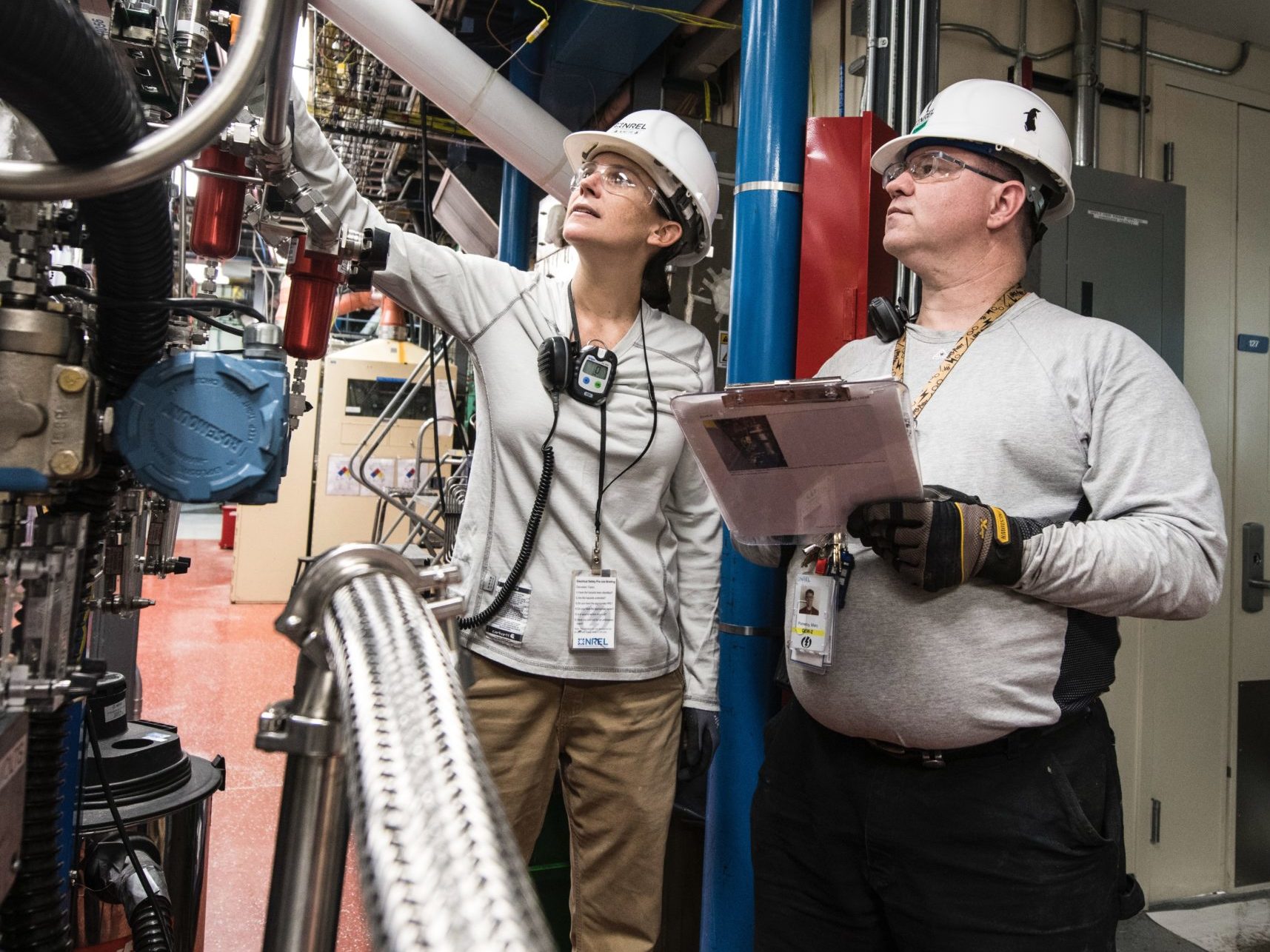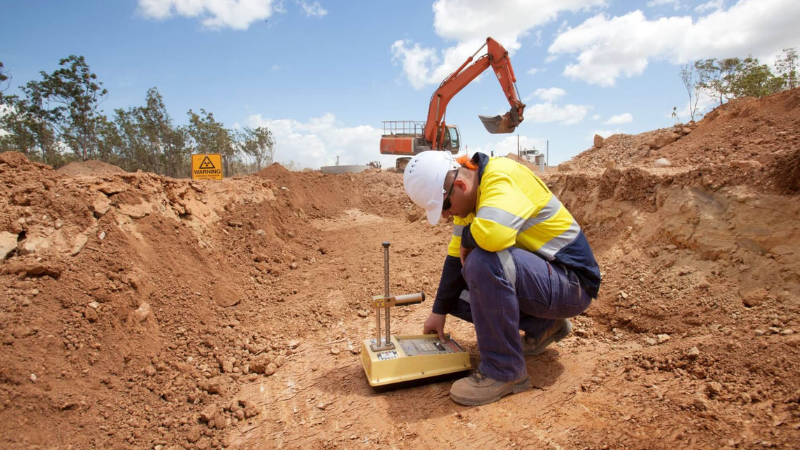Vital Skills for Prospering in the Geotechnical Industry Today
Vital Skills for Prospering in the Geotechnical Industry Today
Blog Article
Recognizing the Comprehensive Duty of Geotechnical Designers in Ground Examination and Soil Evaluation for Building And Construction Jobs
Geotechnical engineers are indispensable to the success of construction tasks, providing crucial insights through comprehensive ground investigations and dirt evaluation. Their expertise in evaluating soil habits and using advanced screening strategies notifies essential decisions that support architectural integrity and safety and security.
Role of Geotechnical Engineers
The critical duty of geotechnical designers in building jobs can not be overstated, as they provide important understandings into dirt actions and website problems. These experts are entrusted with assessing the viability of the ground for numerous kinds of structures, ensuring security and security throughout the building procedure. Their expertise includes a vast array of tasks, including site characterization, dirt sampling, and lab screening, which are critical for establishing the physical and mechanical residential properties of the dirt.
Geotechnical engineers use their searchings for to create foundational designs that fit load-bearing needs and reduce dangers connected to soil liquefaction, incline, and negotiation security. They play an important duty in recognizing possible risks, such as groundwater fluctuations and contamination, which can substantially impact project stability. They collaborate with designers, civil engineers, and service providers to ensure that geotechnical considerations are integrated right into the total layout and building stages.
Ground Examination Methods
Ground investigation strategies create the foundation of geotechnical engineering, making it possible for engineers to obtain a detailed understanding of subsurface conditions. These methods are necessary for assessing dirt buildings, establishing groundwater levels, and identifying possible geological hazards.
Typical approaches consist of borehole exploration, which permits for the removal of soil samples at various midsts, supplying essential information for evaluation. Additionally, in situ screening strategies, such as Standard Penetration Tests (SPT) and Cone Penetration Tests (CPT), are used to examine soil toughness and density directly in the ground.
Geophysical approaches likewise play a substantial function in ground examinations. Strategies such as seismic studies and electric resistivity tomography aid assess subsurface features without considerable excavation. geo tech engineering. These non-invasive methods are especially advantageous in large or sensitive areas where interruption should be decreased
In addition, exploratory trenches can be dug deep into to visually evaluate dirt layers and identify any kind of anomalies. Each of these techniques contributes one-of-a-kind understandings, permitting geotechnical designers to create exact website assessments and notify style choices. In summary, a combination of these ground examination methods is crucial for effective building jobs, making sure security and architectural integrity.
Soil Evaluation Approaches
Dirt evaluation methods are essential for understanding the chemical and physical properties of soil, which directly influence the style and construction of foundations and various other frameworks. Different methods are used to analyze soil characteristics, making certain that geotechnical engineers get exact information for educated decision-making.
One frequently used technique is grain size analysis, which establishes the circulation of fragment dimensions within a soil example. This is important for classifying dirt kinds and anticipating their actions under lots. One more essential technique is Atterberg limits testing, which reviews the plasticity and moisture material of fine-grained dirts, offering understandings into their design residential properties.

Area examinations, such as Typical Infiltration Examinations (SPT) and Cone Penetration Examinations (CPT), deal important in-situ data pertaining to dirt strength and stratification. Collectively, these dirt evaluation methods form the foundation of geotechnical investigation, allowing engineers to design secure and effective frameworks customized to the details conditions of the site.
Threat Mitigation Methods
Carrying out effective threat mitigation techniques is essential for geotechnical engineers to resolve potential challenges in building projects. These strategies are important in identifying, assessing, and taking care of threats related to soil conditions, site stability, and groundwater fluctuations, which can adversely influence task results.
One main approach includes performing complete website examinations that use advanced geophysical techniques and thorough soil tasting. By acquiring exact data on subsurface conditions, designers can make educated decisions on layout and building techniques. In addition, employing anticipating modeling tools enables the simulation of different scenarios, making it possible for designers to predict potential issues and execute precautionary measures.
Additionally, developing clear interaction channels among job stakeholders fosters a collective method useful content to run the risk of administration. Normal updates and assessments make certain that all celebrations are conscious of the advancing website problems and can adjust their techniques appropriately.

Influence On Building And Construction Projects
The performance of danger mitigation approaches directly influences the overall success of building and construction jobs. Geotechnical engineers play an essential role in this domain name, as their proficiency in ground examination and soil analysis educates critical decisions throughout the building and construction process. By precisely analyzing soil conditions and identifying potential threats, these specialists make it possible for task groups to create effective solutions that decrease dangers connected with ground instability, water seepage, and other geotechnical difficulties.
The influence of complete geotechnical analysis appears in various aspects of building and construction projects, including price administration, job timelines, and structural integrity. Early identification of issues allows for timely treatments, reducing pricey delays and budget overruns. Additionally, a comprehensive understanding of website problems enhances the layout and engineering procedure, making certain that frameworks are constructed to stand up to environmental stress and prospective all-natural catastrophes.
Inevitably, the payments of geotechnical designers are important to the effective execution of construction jobs. Their work not just cultivates security and compliance with guidelines but also improves the long-term sustainability of frameworks, making certain that they execute successfully throughout their intended life expectancy. The collaboration in between geotechnical teams and other stakeholders is vital for achieving optimal outcomes in building have a peek at these guys ventures.
Final Thought
In conclusion, geotechnical engineers do a crucial feature in construction projects with comprehensive ground examinations and soil analyses. Their competence in examining dirt habits, using various examination strategies, and implementing risk mitigation methods significantly adds to the architectural honesty and security of developed settings. By collaborating with multidisciplinary groups, these specialists improve job efficiency and guarantee conformity with safety requirements, inevitably causing effective building and construction outcomes and reduced potential threats.
Geotechnical engineers are integral to the success of building and construction tasks, offering vital insights via thorough ground examinations and dirt analysis.The critical duty of geotechnical engineers in building tasks can not be overemphasized, as they give essential insights right into dirt habits and website problems. Their know-how includes a large variety of activities, consisting of website characterization, soil sampling, and research laboratory testing, which are essential for identifying the mechanical and physical buildings of the soil.
By precisely evaluating soil problems and determining possible risks, these professionals enable project teams to develop reliable services that decrease dangers linked with ground instability, water infiltration, and various other geotechnical challenges.
In verdict, geotechnical designers carry out a crucial function in building jobs via comprehensive ground examinations and dirt evaluations.
Report this page